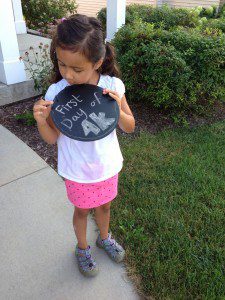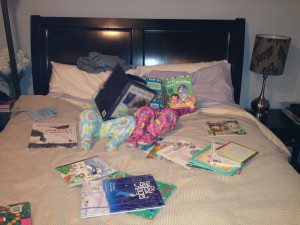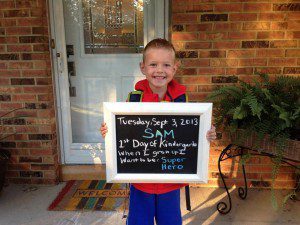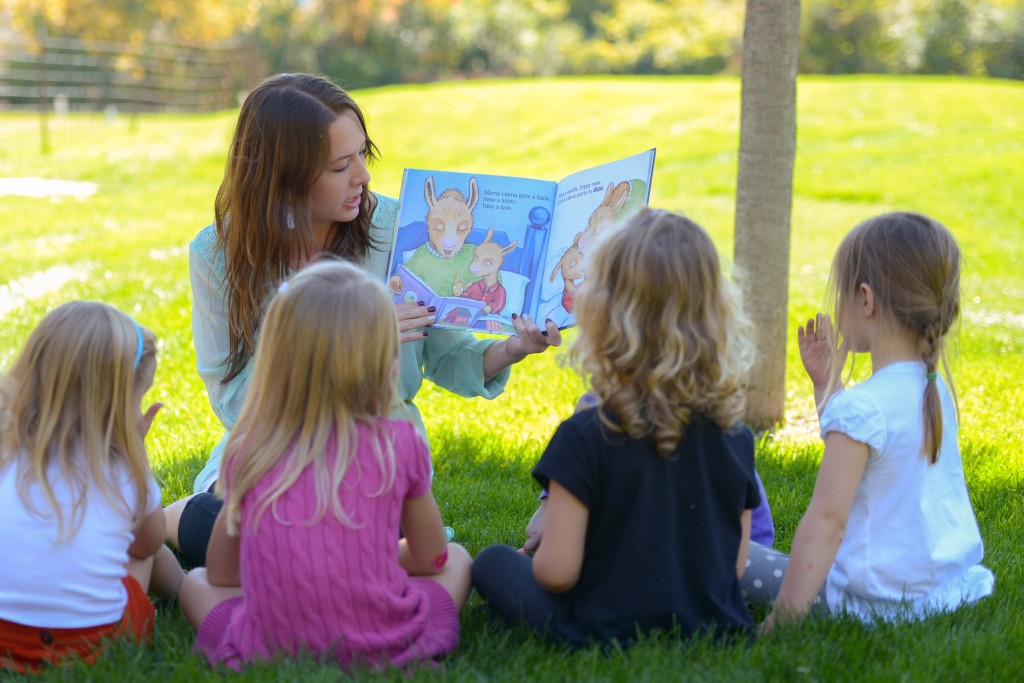Is it just me or does anyone else feel like the school supplies are getting put out earlier and earlier each year? I feel like I was shopping around the 4th of July and the supplies were already out! Well, ready or not, school will be starting up again in just a few short weeks.
I will be starting my 7th year of teaching this fall, and every year I have back to school nightmares… I can’t get to class on time, or I didn’t plan a lesson for the first day, or I am lost in my school. Every year, I think I will be less nervous on the first day, but I’m not. The nightmares still come, and I am still just as nervous. Each year, it reminds me that if I am nervous, my students must be nervous too! I try to put myself in their shoes and remember what it’s like.
As the next few weeks go by, and we all prepare for another school year, I have thought about my own experiences, and have talked to some of my teacher friends about ways to help prepare your kid(s) and yourself for a smooth transition back to school and successful year.
1. Invite classmates over before school starts to ease anxiety. While your child may have seen plenty of children this summer, he/she may be unsure of the transition to a new classroom with a new teacher and a new set of classmates. Invite some children (and possibly even their families) over to play. A new friendship can be confidence boosting and make your child look forward to seeing that friend daily at school.
2. Go school supply shopping together. This may sound like a daunting task, but your child’s excitement for school will build by being a part of the process. If you would rather brave the aisles alone, talk about the supplies at home while packing them in your child’s backpack. Ask your child: why do you think you will need “plastic sandwich bags” (insert any school supply here), what kinds of things will you write down with your pencils, what will you create with scissors, glue, and markers, etc. These questions will spark enthusiasm and maybe even some doubts, which should lead to great conversations and make your child’s transition smoother.
3. Start a bedtime schedule about a week or so before school begins. Getting up to an alarm in the morning is never easy, but starting the habit before the first day of school will help. A well-rested and well-fed child usually has a better day of learning!
4. Create a spot in your home to be designated as your child’s “school space.” This area could be used as a place to do homework and read, as well as keep important papers, a backpack, supplies, etc. Since everything will (theoretically) be in one place, your child will benefit from learning early organizational skills. He/she may even have a clean desk when you go to parent/teacher conferences this fall!
For OLDER kids:
1. Minimize distractions. While most kids think they can multi-task on Facebook, Twitter, Snap-chat, etc., they are actually most productive when they focus on one thing at a time. Emphasize the importance of studying and doing homework in a distraction-free environment.
2. Teach proper (polite) use of electronics. As middle and high school teachers battle the cell phone war, please help us! I don’t mind when the kids have them and I will often try to find ways to use them in class, but my goal is to teach them when it is appropriate to use them. And try to limit texting them during the school day! My students often say, “It’s my mom…” which apparently makes texting while I’m teaching ok. 🙂
3. Make homework a priority! I tend to not give my kids a lot of homework, but when I do it’s important. Try to encourage them to use their “devices” to remind themselves to do it and ask them about it when you can.
4. SLEEEEEP! Ok, maybe you don’t need a complete bedtime routine like the younger kids do, but your kid NEEDS to sleep. I am always astonished when my students tell me (on a regular basis) that they only got 5-6 hours of sleep the night before. Your child CANNOT be successful if they are not sleeping. Ideally 8-9 hours per night. I know they are busy with sports, homework, etc., but sleep must be a priority. It is important for their physical and mental health.
For ALL kids:
1. Read, read, read! While reading is always beneficial, reminding your children how much you love to read and encouraging them will get them back into the school routine. Enjoy some family favorites at home, or discover new authors with a trip to the library.
2. Model for your children how much you value education. If something matters to you, it is more likely to matter to them. Attend back to school night, parent/teacher conferences, and other school-sponsored events. Make homework a priority, and assist your child, as needed. If you are able, volunteer in the classroom or chaperone field trips. Your child will enjoy seeing you in his/her element. Also, communicating with and respecting your child’s teacher will hopefully foster that same relationship between your child and the teacher.
3. The teacher is human. If you have issues with a decision or action made by your child’s teacher, talk to them first before going straight to the principal. In my 7 years of teacher, 99% of the teachers I have met and know want to do right by kids, and teach because they love kids. Most of the time, it can be worked out and explained. Remember, the teacher is human too!
4. Have fun! Don’t forget to enjoy the last few weeks of summer as a family.
So how do you feel about school starting up again? Are you ready for your kids to head back or are you sad it’s over?

















Great post Melissa!